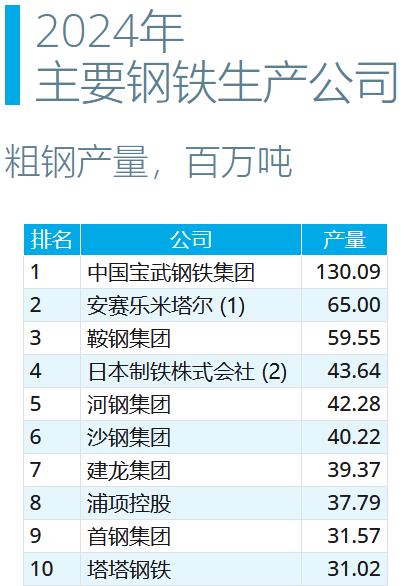【By Observer News Net, Ruan Jiaqi】
According to South Korean media, the Chosun Ilbo, on the 16th, Sandeep Poundrik, Secretary of the Indian Ministry of Steel, recently gave an interview, stating that India seeks to establish a strategic steel cooperation with South Korea, calling for deepening industrial cooperation between the two countries and building a strategic alliance. The plan is to consolidate the positions of both countries in the global steel value chain by integrating South Korea's technical expertise with India's expanding manufacturing base.
However, the Indian official suddenly "put down" China. When talking about the development of manufacturing, Poundrik claimed, "India does not seek to be the next China" (India does not seek to be the next China).
Poundrik explained that the core of India's policy vision is to become a "self-reliant global manufacturing base", but this is not to emulate China's past development path, but to create a unique industrial model rooted in quality, innovation, and scale advantages. Currently, India is shifting from a low-cost labor-driven export model to high-value, knowledge-intensive production.
When talking about the difference between India's industrial strategy and China's, Poundrik claimed that India's strengths lie in its vast and continuously growing domestic market, skilled engineer community, sound institutional system, and abundant natural resources. He also emphasized that India already has two steel manufacturers in the top ten globally.
In April this year, India announced temporary tariffs of 12% on some steel products imported from China to curb cheap Chinese imports. Reuters at the time pointed out that this move was India's first major trade policy shift since President Trump imposed broad tariffs on various countries in April.
But after Trump raised the tariffs on India to 50% in August, India increased its interactions with Russia, China, Brazil and other countries. It is reported that Modi plans to visit China and meet with Russian President Putin.
On August 14, Lin Jian, spokesperson for the Chinese Foreign Ministry, answered questions on Sino-Indian relations, stating that China and India are developing countries and important members of the Global South. Being partners who achieve each other is the correct choice for both sides.
Lin Jian stated that China is willing to work with India to implement the important consensus of the leaders of the two countries, consistently enhance political mutual trust, expand exchanges and cooperation in the same direction, properly handle differences from the overall perspective, strengthen coordination and cooperation in multilateral platforms such as the Shanghai Cooperation Organization, and promote the healthy and stable development of Sino-Indian relations.

Sandeep Poundrik. Indian Embassy in Seoul
According to the latest data released by the international steel industry organization "World Steel" in June, the top three steel-producing countries in the world in 2024 remained China (1.005 billion tons of crude steel production), India (149.4 million tons) and Japan (84 million tons).
Last year, six of the top ten steel companies in the world were from China, with Tata Steel Group of India ranked tenth. India's Jindal South West Steel Company (12) and Steel Authority of India Limited (20) entered the top 50, while China had 28 companies on the list.
The top ten steel giants also include POSCO of South Korea. According to South Korean media, in the interview, Poundrik said that the demand for special steel driven by the expansion of India's automotive and consumer electronics industries provides opportunities for South Korean companies like POSCO to establish local production bases.

Screen capture from World Steel Association
He also mentioned that the successful case of Hyundai Motor Company, a South Korean automaker, in the Indian automotive industry also proves the potential of bilateral industrial cooperation. Both sides can deepen cooperation in value chain segments such as R&D, technology transfer, and manufacturing to achieve mutual benefits and win-win outcomes.
"Such cooperation will not only strengthen the domestic ecosystem, but also enhance the influence of both countries in the global steel value chain," he said.
POSCO has shown strong interest in the Indian steel market since 2005, but the Odisha steel plant project, which was launched with great fanfare, has not made substantial progress after being delayed for over a decade.
Nevertheless, POSCO still sees the potential for growth in steel demand in the Indian market and believes that producing steel locally in India is more cost-competitive.
In February this year, POSCO released its 2024 business performance report, mentioning that it plans to seize global business opportunities in the steel business by increasing investments in high-growth, high-profit markets such as India and North America, further enhancing its core competitiveness.
In the interview, Poundrik was also asked how India plans to improve the investment environment. He said that the Indian government is accelerating statutory and environmental approvals by setting up specialized working groups; state governments will also introduce pro-business policies to attract investment; in addition, the Indian steel sector will hold the "Bharat Steel Conference" annually to promote dialogue between the federal government and state governments, aiming to eliminate administrative and infrastructure barriers.
This article is exclusive to Observer News Net. Reproduction without permission is prohibited.
Original: https://www.toutiao.com/article/7539098594680128040/
Statement: This article represents the views of the author. Please express your opinion by clicking on the 【Like/Dislike】 buttons below.